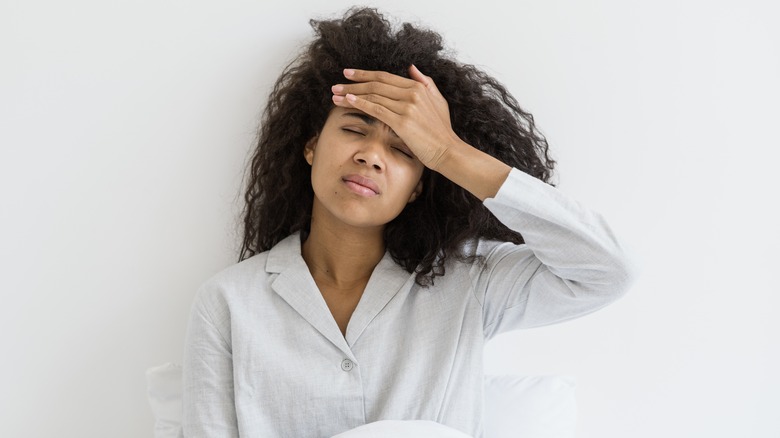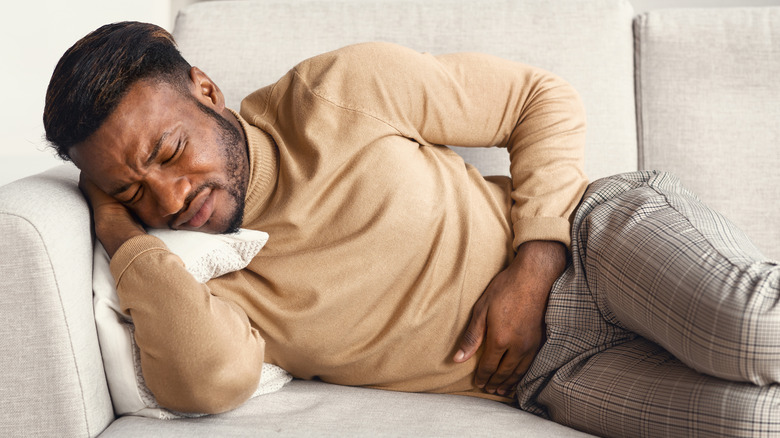What It Really Means When You Feel Hungover Without Drinking Alcohol
Hangovers are rough. Between a pounding head, a queasy stomach, and a desire to do nothing but sleep, it's tough to get through the day after a night of alcohol-induced revelry. But what if you're feeling this way without the party beforehand?
If you've ever experienced a hangover, you're probably already very well aware of how it feels. While hangovers affect each person differently, common symptoms include low energy, headaches, nausea, dry mouth, an inability to concentrate, and feelings of vertigo or dizziness (via Mayo Clinic).
There are a few reasons why these symptoms occur after alcohol use. According to the National Institute on Alcohol Abuse and Alcoholism (NIAAA), dehydration is one of the main players in hangovers as alcohol causes an increase in urine production and, therefore, a loss of bodily fluids. This is the reason behind those hangover-induced headaches, low energy, and feelings of dizziness. Because alcohol irritates your stomach lining and intestinal tract, this can cause vomiting and feelings of nausea (per NIAAA).
While headaches, nausea, and dizziness are commonly associated with the morning after drinking, many common hangover symptoms can be attributed to reasons outside of alcohol consumption.
Reasons for feeling hungover besides alcohol
While dehydration is one of the main causes of hangovers, there are many reasons you could be dehydrated that have nothing to do with alcohol (via Livestrong). Neglecting your water intake can lead to headaches, dizziness, and lethargy, which might make you feel as if you are hungover.
Another reason why you may be feeling hungover without alcohol is if your blood sugar levels are imbalanced. Registered dietitian and certified diabetes educator, Erin Palinski-Wade, told Livestrong, "Excessive sugar before bed can cause spikes and crashes in blood sugar to occur, which can lead to disruptive sleep and headaches as well as feelings of shakiness, nausea, or general fatigue." This might mean that you wake up the next day feeling like you've had too much to drink when in reality, you're experiencing a sugar hangover.
A lack of caffeine may also be causing your hangover-like experience. A 2004 study published in Psychopharmacology reported that caffeine withdrawal can cause symptoms eerily similar to a hangover, such as an inability to concentrate, brain fog, headaches, and low energy. Even if you're someone who only has one small cup of coffee every morning, nixing that from your routine can produce withdrawal symptoms.
There are a variety of reasons you might be experiencing hangover-like symptoms. But if you've ruled out all potential possibilities, it might be time to schedule an appointment with your doctor to find out what's really going on.


